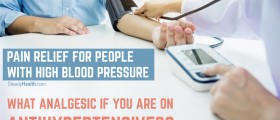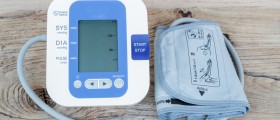
Patients diagnosed with the high blood pressure (hypertension) must realize the importance of the therapy. Hypertension is the condition that must be treated, because otherwise it will lead to heart and kidney problems, loss of vision or stroke.
High blood pressure is usually associated with the headaches, tiredness, dizziness, vision problems and shortness of breath. It can be caused by stress in your everyday life or be inherited. Certain medical conditions, like kidney disease, thyroid problems and diabetes mellitus might also cause high blood pressure. There are also several different risk factors for development of hypertension, including the age, obesity, smoking or high sodium diet.
Anti-hypertensive Medications
Several groups of drugs are used to treat heightened blood pressure. These are: ACE (angiotensin converting enzyme) inhibitors, angiotensin antagonists, calcium channel blockers (CCBs), diuretics, beta blockers, alpha blockers, combined alpha and beta blockers, vasodilators and peripheral adrenergic inhibitors.
In patients suffering from diabetes, chronic kidney problems or heart attack and hypertension, the recommended drugs are ACE inhibitors and angiotensin receptor blockers. Calcium channel blockers are used to treat chest pain (angina pectoris) and arrhythmias, beside hypertension. Beta blockers are preferred in the treatment for people suffering from resting tachycardia or acute heartattack.
Adverse Effects
All hypertensive medications may cause unwanted side effects. Some effects can be tolerated and others might cause the change of the antihypertensive medications.
ACE inhibitors are known to cause skin rash and allergic reactions. Patients using these medications also complained about chronic dry cough, which may be the reason to switch to different drugs (usually angiotensin receptor blockers). In patients suffering from renal failure, ACE inhibitors might cause hyperkaliemia, potentially serious condition. Because of this, people suffering from kidney or arterial problems should not use these medications and the same goes for pregnant women.
Angiotensin receptor blockers can also cause skin rashes, but also dizziness and headaches in people using them. These drugs are not suitable for pregnant women.
Alpha blockers may be the reason for headaches, dizziness, drowsiness or lightheadedness.
Beta blockers could cause tiredness, sleeping problems, intolerance, drowsiness, dizziness and even depression. Patients using beta blockers could suffer from asthma or slow heartbeats, too. These medications are well known to cause problems in diabetics, since they cover up the warning signs of lowered blood sugar.
CCBs are reported to cause nausea, skin rash, bleeding gums, drowsiness, headaches and constipation. These drugs can be responsible for the swelling in your ankles and feet.
Diuretics can lead to tiredness, dizziness and leg cramps, but also to hypokalemia (low potassium in the blood). These medications should not be used by pregnant women or diabetic patients.
Vasodilators may cause skin rash, vomiting, diarrhea, headaches, anxiety and flu-like symptoms. Chest pains and heart problems were also reported by patients using vasodilators.

















Your thoughts on this
Loading...